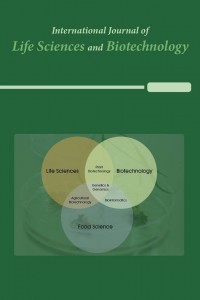
International Journal of Life Sciences and Biotechnology
Yazarlar: Nurul Hidayah SAMSULRİZAL, Zarina ZAİNUDDİN, Abdul Latif NOH, Tamil Chelvan SUNM
Konular:Bitki Bilimleri
Anahtar Kelimeler:Stevia,Stevia rebaudiana,Steviol glycoside,Transcriptome
Özet: Stevia rebaudiana (Bertoni) is a commercially important plant worldwide. The leaves of stevia contain steviol glycosides which are non-caloric and high-potency sweeteners. They are suitable for substituting sucrose and other artificial sweetening agents. Stevia also has many therapeutic properties such as antidiabetic, anti-cariogenic, antimicrobial, anticancer and antioxidative. Rebaudioside A and stevioside are the major glycosides produced in stevia leaves. Development of new varieties of Stevia rebaudiana with a greater content of rebaudioside A and decreased content of stevioside is the main concern. This is due to rebaudioside A having a more desirable sweet flavour taste than stevioside which possesses bitter aftertaste. In respect to that, many biotechnological approaches are available for the industrial improvement and manipulation of steviol glycosides content in stevia. Transcriptome profiling has emerged as a useful tool to identify target genes involved in the steviol glycosides biosynthesis pathway. Understanding the mechanism and biosynthesis pathway of these compounds can help to improve the glycosides profile by up-regulating and down-regulating desired genes. The aim of this paper is to describe the latest development in the transcriptome profiling in stevia as well as to discuss the methods used in this endeavour.
Dergi editörleri editör girişini kullanarak sisteme giriş yapabilirler. Editör girişi için tıklayınız.